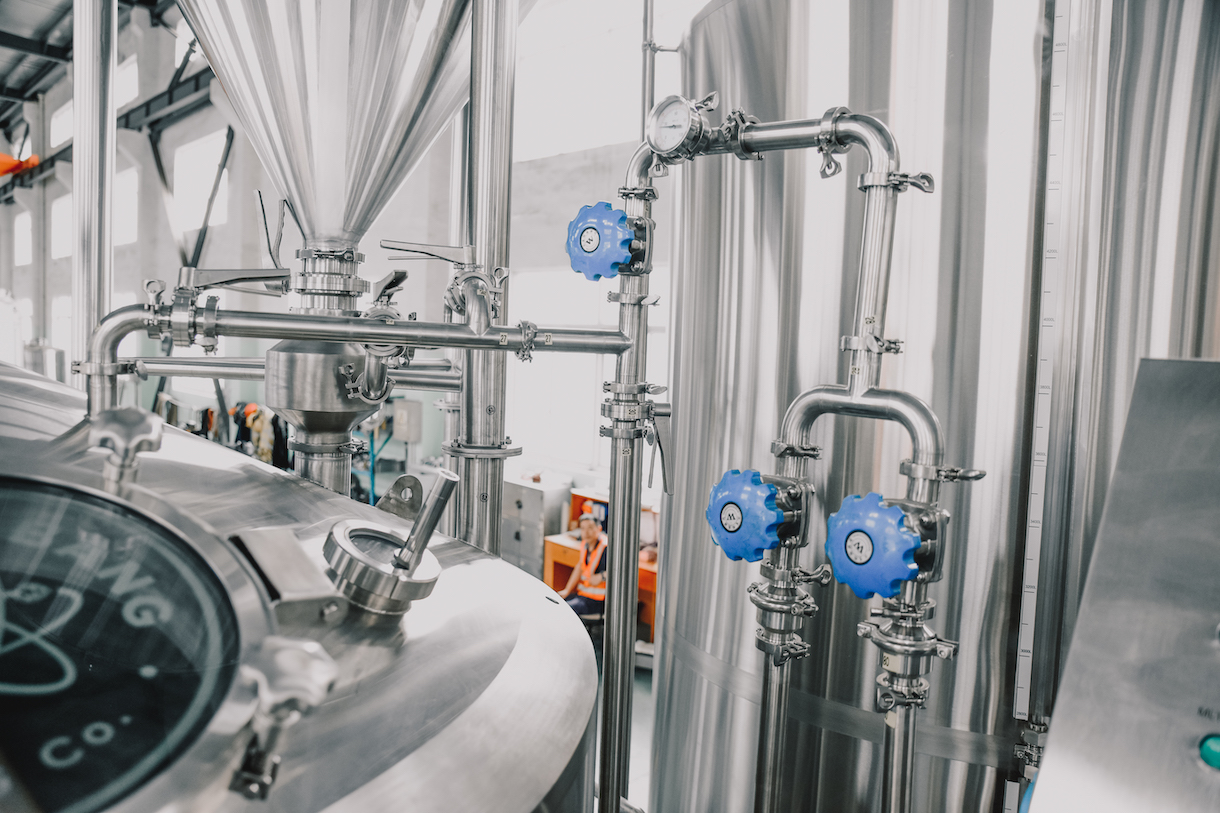
Let’s look at Water/Liquor Requirements
Considering Brewhouse Utilities? Let’s look at Water/Liquor Requirements
One of the wonderful things about the craft brewing industry is the huge amount of collaboration.
Of course everyone wants to be the best they can be – it is business, after all.
But there is also an underlying attitude of generosity and support. We want others to succeed in their endeavours – and we are inspired by the success of others.
Here at Bespoke Brewing Solutions, we believe the key to innovation in our industry is to empower people with knowledge.
We share all the information we can – to help our brewers learn and flourish.
We hope you enjoyed our previous blogs in this particular series, regarding brewery layout, design and electrical requirements.
Here we are looking at what to consider for all the water requirements in your brewery.
Industry Terminology – Water/Liquor
When I started in the craft beer industry I was a bit confused as to why I kept hearing the term ‘liquor’ used in different ways.
Terms like liquor mixing, hot liquor tank, cold liquor tank, etc. all lead me to believe beer was actually spiked with a spirit to get its ABV! (Please don’t judge.)
I later realised – liquor is a term used in the industry for water. It is the main building block of beer and an essential consideration when building your brewery.
Under pressure!
While searching for a location for your brewery it is important to consider the amount and pressure of the main water lines coming into the building (and subsequent rationing of the supply into the different areas of the site.)
If you are trying to fill your 1000L hot liquor tank or wash down your floor via a 19mm ID pipe with 1 bar of pressure behind it, you might be waiting a while…
There are always options at your disposal to work around this.
But may I point out – there are other parts of the business which will need to tap into this resource. So it’s important to get it right.
One way to manage this is to strategically time the different operations within your business.
For instance – if the brewery team is working early mornings and the kitchen or bar staff are not there until brewing is pretty much complete – they will generally coexist quite well.
Pro Tip: Usually city water pressure should be enough for floor spray down. While I have ever had to consider hose size for this application, investing in an upper end water nozzle is worth the money spent. My favourite is Strahman 🙂 – Jennifer Talley, Talley Fermentations Consulting Services
Water Filtration and Chemistry
Water is the building block for your beer.
And yet – we are always surprised to see some breweries aren’t allowing their beer to start off the gate, in the optimal position.
Water chemistry can be tricky – and complex. So we won’t get into the nitty gritty here today – but we always ensure we enter into a deeper conversation about this with clients.
In simple terms, ‘hardness’ (the amount of dissolved calcium and magnesium) and ‘alkalinity’ (the amount of carbonate and bicarbonate) are two of the most important considerations when it comes to getting your water chemistry right.
As a general rule, water being used for brewing should have low to moderate levels of hardness and alkalinity. (But this will vary depending on the style of beer you are brewing.)
The base chemistry of the water coming into your building will help determine the following:
- What filtration route you will take to get your water into the best state and ready for the different styles of beers you will be brewing. We have had clients go all out and put in an RO system into a buffer tank to be used for brewing. Most cases a small particle and active carbon filter will be sufficient, but note that you will want to send your water post filtering for testing to see where you stand.
- The different types and concentrations of brewing water additives like salts and acids to help balance the pH or mineral composition of your water.
Pro Tip: Most public water systems will have a specifications sheet for the water chemistry they are aiming to hit and work within a range of their goal. You can start from here to determine what filtration you will need to invest in. – John Gonzales
A Bespoke Solution
There is a lot to take into account when it comes to your brewery’s water requirements.
This is because you also need to consider both flow and composition – with the former being a show stopper in some instances.
The beauty of combining forces with Jennifer Talley and Talley Fermentations is we are now able to put together consulting packages to help you with all aspects of your brewery and water composition.
This can help take your beverages to the next level.
Make sure to drop us a line if we can help in any way.




